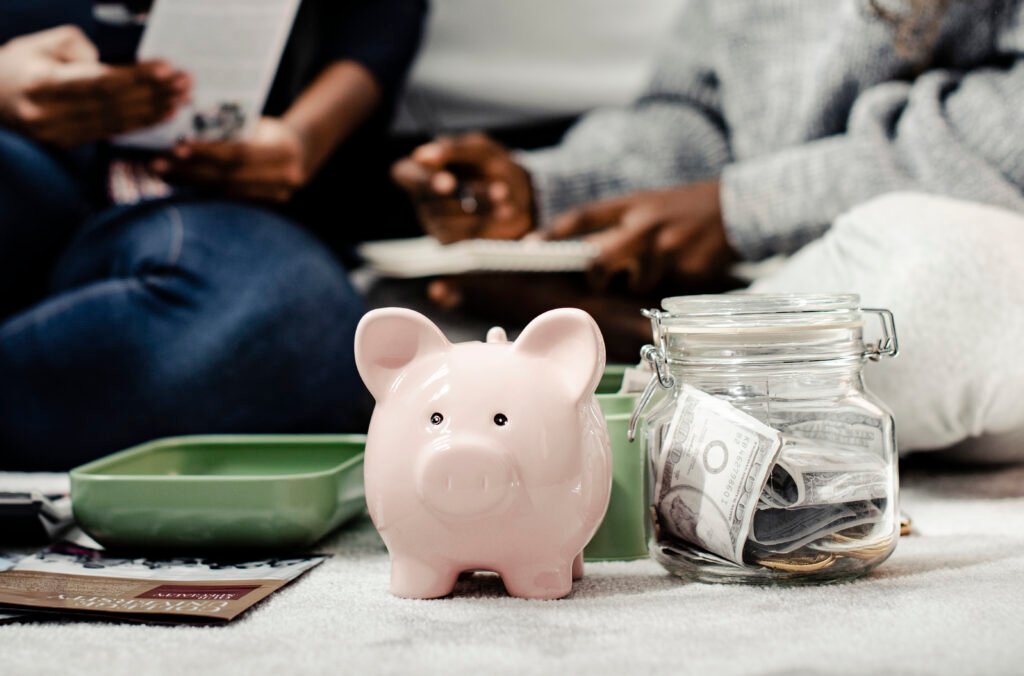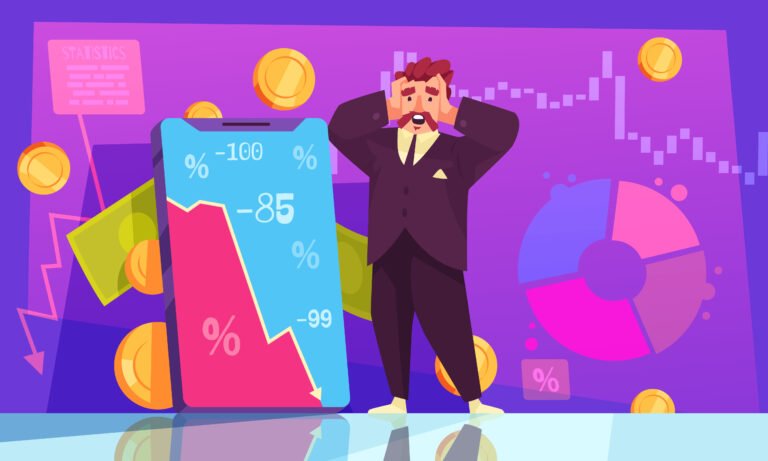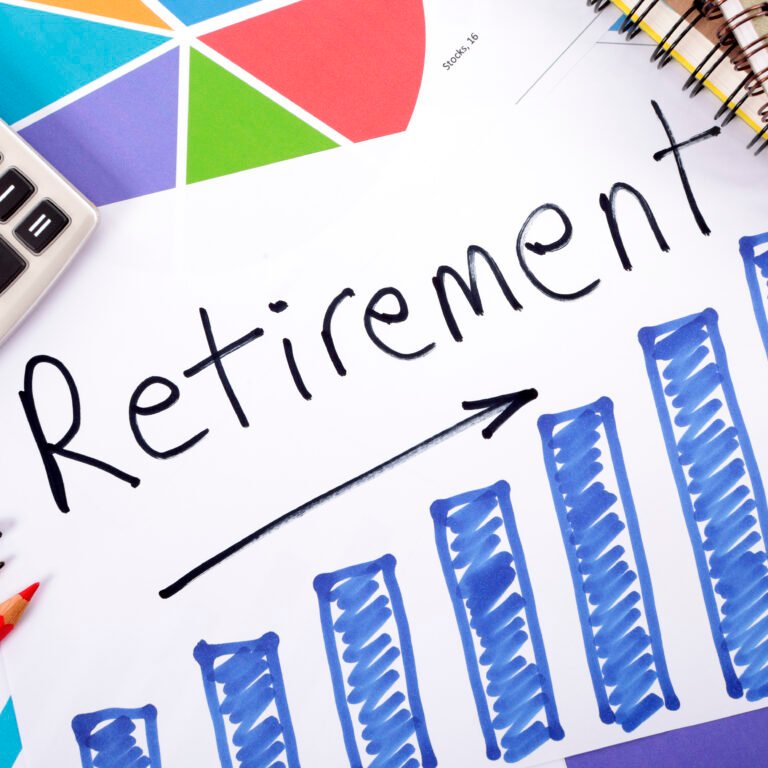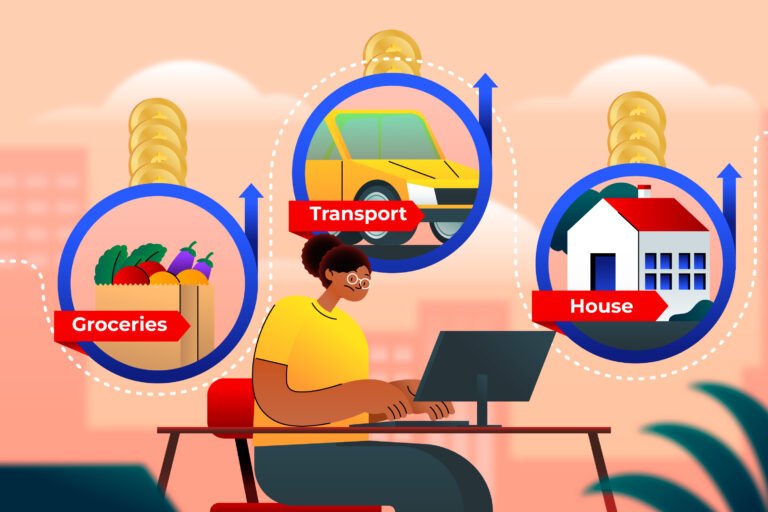1. 🔥 The Harsh Reality of Financial Uncertainty in 2025
Rising Inflation and Shrinking Purchasing Power
Even as salaries creep up, the cost of everyday essentials—from groceries to rent—continues to climb faster. What bought you peace of mind in 2020 now barely covers the basics. In 2025, inflation isn’t just a headline—it’s a daily reality eroding your savings and stretching your paycheck thinner than ever. Without an emergency fund, any unexpected expense can instantly derail your budget.

Table of Contents
Job Instability and the Freelance Economy
The job market is shifting fast. AI is replacing roles, companies are downsizing, and more people are turning to freelancing or gig work—often without benefits or reliable income. While flexibility is a perk, unpredictability is the price. One slow month or canceled contract, and you’re scrambling to cover rent. A well-stocked emergency fund is your safety net when income takes a hit.
The Silent Threat: Medical and Personal Emergencies
Whether it’s a sudden illness, car breakdown, or family crisis, life has a way of throwing curveballs at the worst possible moment. In 2025, healthcare costs continue to rise—even with insurance. Personal emergencies don’t wait for your finances to be ready. An emergency fund ensures you’re prepared to act, not just react, when the unexpected happens.
2. 💼 No One’s Job Is 100% Safe Anymore
The Rise of AI and Automation Layoffs
What used to sound like science fiction is now reality. From customer service reps to content creators, AI is rapidly automating tasks that once required humans. Companies are downsizing not because business is bad—but because machines are cheaper, faster, and always “on.” Even skilled professionals aren’t immune. In 2025, job loss can come not from poor performance, but from becoming obsolete. An emergency fund gives you breathing room to pivot, reskill, or job-hunt without desperation.
Economic Slowdowns and Industry Shifts
Whether it’s tech, finance, or even education, no industry is truly recession-proof anymore. Global events, trade disruptions, or new regulations can trigger massive shifts overnight. One quarter you’re celebrating bonuses; the next, your department is on the chopping block. You may not be able to control the economy—but you can control how prepared you are to ride out its storms.
What Happens When Your Paycheck Suddenly Stops?
For most people, their income is the lifeline. But what happens when that lifeline is cut without warning? Bills keep coming. Rent or mortgage is still due. Groceries don’t pay for themselves. Without an emergency fund, you’re forced to make hard decisions fast—often relying on credit cards or loans, which only dig the hole deeper. A well-prepared emergency fund buys you time, options, and peace of mind during one of life’s most stressful transitions.
3. 🛡️ Emergency Funds = Financial Self-Defense
What an Emergency Fund Actually Does for You
An emergency fund isn’t just a pile of cash sitting in your bank—it’s your first line of defense against financial disaster. It cushions the blow of sudden expenses like car repairs, job loss, medical emergencies, or urgent travel. Instead of scrambling to find money when crisis strikes, you’re ready. It transforms chaos into calm and gives you the ability to make smart decisions under pressure.
Peace of Mind: The Most Underrated ROI
The best thing an emergency fund gives you? Peace of mind. Knowing you have a buffer—three to six months of expenses—helps you sleep better, think clearer, and worry less about “what ifs.” In 2025’s uncertain world, that sense of security is priceless. Financial stress bleeds into every area of your life. Eliminate that stress, and you free up energy to focus on what matters most.
Avoiding the Debt Trap When Life Happens
Without an emergency fund, unexpected expenses almost always lead to one thing: debt. Credit cards, payday loans, and borrowing from friends may provide a quick fix—but they come with high interest, strained relationships, and long-term consequences. Having cash on hand helps you stay in control. It lets you handle life’s curveballs without racking up interest or sacrificing your future financial goals.
4. 💳 Credit Cards Are Not an Emergency Plan
The Dangerous Cycle of High-Interest Debt
Using a credit card to handle emergencies might feel like a quick fix—but it can quickly become a long-term problem. With interest rates often hovering between 20–30%, that $500 emergency could cost you double if you can’t pay it off immediately. Once you’re in the cycle, minimum payments keep you stuck, and every future emergency becomes harder to recover from. Debt isn’t a backup plan—it’s a trap.
Why “Buy Now, Panic Later” Is a Risky Strategy
It’s easy to swipe your card and tell yourself you’ll “figure it out later.” But later comes fast—and often with interest, fees, and regret. Relying on credit during tough times leads to stress, not solutions. Emergencies require clarity and control, not delayed panic. A credit card increases the pressure. An emergency fund releases it.
Real-Life Scenarios Where Only Cash Saves You
- Your car breaks down and the mechanic won’t take cards without a processing fee.
- You lose your job and now can’t qualify for a new credit line.
- A family crisis requires immediate travel—and credit limits are maxed.
In these moments, available cash is the difference between chaos and control. Credit might not work, but an emergency fund always does.
5. 📊 How Much Should You Really Save in 2025?
3, 6, or 12 Months? The New Rule of Thumb
Traditionally, experts recommend saving 3 to 6 months’ worth of living expenses for emergencies. But in today’s unpredictable world, some suggest 12 months—especially if you’re a freelancer, entrepreneur, or in a volatile industry. The right amount depends on your personal risk factors. The key is having enough to cover your essentials without borrowing or stress if your income halts.
Calculating a Custom Emergency Fund Based on Your Lifestyle
To find your ideal fund size, start by listing your fixed monthly expenses: rent/mortgage, utilities, food, healthcare, insurance, loan payments, and minimum debt payments. Don’t forget irregular but necessary costs like car maintenance or annual subscriptions. Multiply your total monthly expenses by the number of months you want your fund to cover. Adjust higher if you have dependents, unstable income, or health concerns.
Where to Park Your Emergency Cash (and Where Not To)
Your emergency fund needs to be liquid and safe—accessible without penalties but separated enough to resist impulse spending. Great options include:
- High-yield savings accounts
- Money market accounts
- Short-term certificates of deposit (CDs) with no early withdrawal fees
Avoid investing your emergency fund in stocks or cryptocurrencies, as their value fluctuates and you might lose access when you need cash the most.
6. 🚀 How to Start (Even If You’re Living Paycheck to Paycheck)
The $1/Day Emergency Fund Challenge
Building an emergency fund can feel impossible when every penny counts—but what if you started with just $1 a day? That’s less than a cup of coffee or a snack. Over a year, it adds up to over $360—a solid foundation for your fund. Small daily deposits create momentum, build discipline, and prove to yourself that saving is possible, even on a tight budget.
Automate It: Pay Yourself First
Set up an automatic transfer from your checking to your savings account on payday. Treat your emergency fund contribution like a non-negotiable bill. This “pay yourself first” habit ensures you save consistently without having to think about it, reducing the temptation to spend the money elsewhere. Even small amounts add up surprisingly fast.
Cutting Just 3 Expenses Can Kickstart Your Fund
Look closely at your monthly spending and identify three small expenses you can reduce or eliminate—like that streaming service you rarely use, daily takeout coffee, or unused subscriptions. Redirect that money straight into your emergency fund. These tiny cuts won’t hurt your lifestyle but will create a crucial safety net for the future.
7. 🧠 Mindset Shift: Emergency Funds Are Not Optional
It’s Not Just for “Worriers”—It’s for Smart Planners
Saving an emergency fund isn’t about fear or anxiety—it’s about being proactive and prepared. Smart planners understand that life is unpredictable, and having a financial cushion is a strategic move, not a sign of weakness. Shifting your mindset from “I hope I won’t need it” to “I’m ready if I do” changes how you approach money and life.
Your Future Self Will Thank You
Every dollar you save today is a gift to your future self—someone who may face challenges beyond your control. Building your fund is an act of self-care and responsibility. When unexpected expenses hit, your future self will feel grateful, calm, and empowered instead of stressed and stuck.
Think of It as Your Freedom Fund, Not a Restriction
An emergency fund isn’t about restricting yourself or living in fear. It’s a freedom fund—money set aside so you can take risks, say no to toxic jobs, or pause and regroup without financial panic. This mindset turns saving into an empowering choice that opens doors rather than closing them.
8. 📉 What Happens Without One? Real Stories & Regrets
A Car Repair That Wrecked a Budget
When Sara’s alternator went out, the $800 bill felt like a punch to the gut. Without savings, she put it on her credit card—only to see the balance creep higher as interest piled on. What should have been a one-time expense turned into months of minimum payments, late fees, and stress. If Sara had even a few hundred dollars set aside, she’d have paid cash and avoided the debt spiral altogether.
Losing a Job and Gaining $5,000 in Credit Card Debt
After Mark’s company automated his department, he found himself unemployed with a mortgage to pay. Panicked, he relied on multiple credit cards to cover living costs—rent, utilities, groceries. In just three months, he racked up over $5,000 in high-interest debt. Searching for work under that weight of obligation only added pressure. An emergency fund would’ve given him breathing room to job-hunt strategically instead of scrambling for quick fixes.
The Stress of Unpreparedness During a Family Emergency
When Aisha’s mother fell ill unexpectedly and needed to travel abroad for treatment, Aisha had neither the time nor funds to plan. She scrambled to borrow from friends, sell belongings, and take out a costly personal loan. The emotional toll of caregiving was compounded by financial anxiety—every phone call and medical update carried an undercurrent of “How will I pay for this next?” A modest emergency fund would have allowed her to focus on her mother’s health, not the mounting bills.
Read Also: Track Your Monthly Savings Like a CFO — Without Excel Overwhelm






